Offering Independent and Evidence-Informed Scientific Advice to Government and Society
The Academy aims to promote the adoption of technological discoveries and innovations and provide for the investigation of matters of public interest relating to science and technology
The Academy envisions a future where Zambia’s socio-economic development is anchored on science, technology and innovation.
Investigating, examining and reporting matters of public interest concerning science and technology on its initiative or at the request of the government, its agencies and the private sector;
Providing independent evidence-informed advice in the development, promotion and utilisation of science, technology, engineering and mathematics;
Providing financial and technical support for research and innovation in collaboration with national, regional and international organisations;
Establishing and strengthening cooperation with national, regional and international institutions that promote science, technology, engineering and mathematics;
Promoting the utilisation of research findings for decision-making and policy formulation;
Promoting the use of science, technology and innovation in achieving sustainable development;
Providing support to programmes aimed at improving curricula and the teaching of science, technology, engineering, and mathematics at all levels of the education system;
Undertaking the publication and dissemination of scientific and technological achievements in collaboration with the National Science and Technology Council and other organisations that promote science, technology, innovation, engineering and mathematics;
Providing support in the establishment and operation of specialised discipline-based science academies and young academies of sciences;
Recognising and honouring distinguished scholars such as scientists, mathematicians, engineers and technologists;
Promoting the recognition of intellectual property rights for scientific discoveries and innovations by relevant written laws;
Promoting interdisciplinary research on national matters relating to science, technology and innovation;
Promoting and advocating for strengthening and capacity building of the existing research institutions through increased domestic resource allocation.
In fulfilling its mandate, ZaAS embraces the following core principles and values.
The Zambia Academy of Sciences is an independent grouping of top natural and social scientists and engineers established to primarily promote technological discovery and innovation; promote research and its utilisation in the development of science and technology; and investigate matters of public interest relating to science and technology. It seeks to advance science, including life and physical sciences, medicine, engineering, mathematics, social science and technology as a vehicle for the attainment of sustainable development for Zambia. The Zambia Academy of Sciences promotes, supports, recognises and celebrates excellence in science and technology.
The Zambia Academy of Sciences was initially registered under the Societies Act in 2005. In 2020 the Zambia Academy of Sciences Act No. 18 of 2020, gave the Academy legal backing and more power to deliver on its mandate. It is an independent institution of distinguished scientists, engineers, and other professionals. The Academy, in the exercise of its functions, collaborates with existing entities whose functions relate to the development of science, technology, engineering, mathematics, and their offshoot innovations.


The General Assembly is the mandatory annual meeting of all the members of the Academy and it is the Supreme Authority of the Academy. The General Assembly determines the general policies of the Academy, establishes Standing Committees of the Academy; elects the Governing Council of the Academy; elects members of the Academy; and provides support in the establishment and operations of specialized discipline-based science academies and young academies of science. The General Assembly is presided by the President of the Governing Council.
The Governing Council of the Zambia Academy of Sciences is a non-executive body responsible for implementing the decisions of the General Assembly. Hence, the management of the Academy’s affairs is the responsibility of the Governing Council. However, in practice, The Governing Council has delegated the day-to-day administration of the Academy to an Executive Director. The Governing Council is elected at the General Assembly from amongst the Ordinary Members and Fellows of the Academy and comprises the President, as Chairperson; the Vice-President, as Vice-Chairperson; the Secretary General; the Treasurer; and five Committee Members. The five Committee Members are from the fields of life sciences, engineering & technology, medicine & health sciences, mathematics, and social sciences. The members of the Governing Council are called Councillors. The tenure of office of a councillor is three years and a councillor could be re-elected for a further three years.
The Zambia Academy of Sciences General Assembly is responsible for establishing the Standing Committees of the Academy. The Academy has nine (09) Standing Committees. Four (04) of the Standing Committees are administrative, namely: Finance, Resource Mobilisation, Research and Publications, and Awards. The other five (05) Standing Committees are technical and cover the fields of Engineering and Technology; Life Sciences; Mathematics; Medicine and Health Sciences; Social Sciences. Whereas the Vice President of the Academy oversees the works of all committees, the technical committees are chaired by the five committee members of the Governing Council.

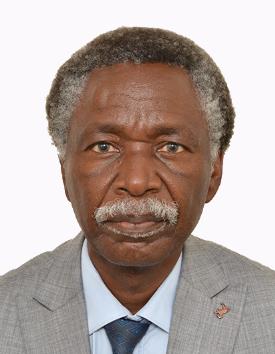
Professor Godfrey Biemba is a Professor of Global Health and Research at Lusaka Apex Medical University and President of the Zambia Academy of Sciences. He brings over 38 years of experience in health research, policy, and management, specializing in health systems, HIV/AIDS, maternal and child health, and malaria. Professor Biemba has played a significant role in advancing Zambia’s health research landscape, including serving as the Director of the National Health Research Authority (NHRA) and Chair of the Tropical Diseases Research Centre (TDRC).
Professor Biemba was instrumental in establishing Zambia's first National Health Research Agenda and the NHRA, enhancing the country’s capacity for evidence-based public health decisions. He has also held senior research roles, including Country Director for the Zambia Centre for Applied Health Research and Development (ZCAHRD), where he led studies funded by organizations like USAID, UNICEF, and the World Bank, contributing to key public health research on child health and infectious diseases.
Before joining Lusaka Apex Medical University, Professor Biemba held various senior roles in Zambia's health sector, such as Deputy Director for Epidemiology and Disease Control at the Ministry of Health and Executive Director at the Churches Health Association of Zambia (CHAZ). He also contributed to policy development on HIV/AIDS as part of Zambia’s health initiatives.
Professor Biemba holds a Ph.D. in Clinical Research, an MSc in Public Health in Developing Countries from the London School of Hygiene and Tropical Medicine, an MBChB from the University of Zambia and a Diploma in Tropical Medicine and Hygiene from the Liverpool School of Tropical Medicine.. He is a Fellow of the Zambia Academy of Sciences, a Board Member of the European and Developing Countries Clinical Trials Partnership (EDCTP), and serves on multiple editorial boards of international health journals.
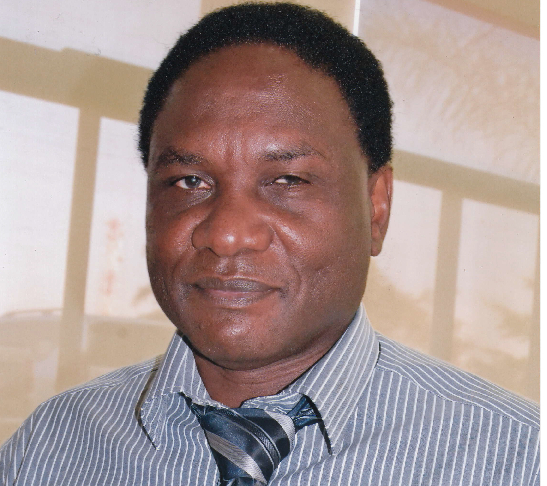
Professor Cyprian Katongo is a Professor of Fish Genetics at the University of Zambia (UNZA) with over 25 years of experience in biological research, teaching, and conservation. He has held key roles, including Head of the Department of Biological Sciences and Acting Dean of the School of Natural Sciences at UNZA. He is currently the Vice President of the Zambia Academy of Sciences. Professor Katongo is a renowned expert in fish genetics, biodiversity, and conservation biology, with research focusing on the biodiversity and evolutionary biology of freshwater fish in Zambia.
Professor Katongo’s research has significantly contributed to understanding fish biodiversity and conservation in Zambia’s aquatic systems, such as Lake Tanganyika and the Kafue River. He has led numerous research projects on the genetic diversity of cichlid fishes and the impact of invasive species on native fish populations, supported by international partnerships. His scholarly output includes numerous publications in high-impact journals, and he has supervised multiple MSc and Ph.D. students across universities in Zambia, South Africa, and internationally.
In addition to his academic roles, Professor Katongo is actively engaged in public service as a member of the Zambia Aquaculture Enterprise Development Project Technical Committee and Vice President of the Ecosystem-Based Adaptation for Food Security Assembly (EBAFOSA) under UNEP. He is a Fellow of the Zambia Academy of Sciences and serves on the editorial boards of the Journal of Great Lakes Research and BMC Evolutionary Biology.
Professor Katongo holds a Ph.D. in Biological Sciences from the University of Zambia (UNZA), an MSc in Applied Genetics from the University of Birmingham, UK, and a BSc in Biology and Chemistry from UNZA. He has also completed specialized training in pathogen genomics, bioinformatics, and intellectual property rights from institutions like the University of Pretoria, South Africa, and the World Intellectual Property Organization, Switzerland.

Professor Phenny Mwaanga is a Chemist, Water Quality Specialist, and Environmental Toxicologist with extensive experience across academia, industry, and research. He began his career in the rubber and mining industries after obtaining a BSc in Chemistry from the University of Zambia in 1993. During his tenure in the mining industry, Dr. Mwaanga advanced to Head of the Sectional Chemist-Spectrographic role, where he led quality certification processes for copper and cobalt exports. His responsibilities included conducting research to optimize analytical methods for enhancing production efficiency and performing routine and non-routine analyses on a wide range of samples, including mine effluents, freshwater, soil, plants, and air, utilizing advanced analytical techniques such as LC-MS/MS, GC/MS, ICP-OES, and AAS. Professor Mwaanga joined the University of Zambia as a lecturer and, in 2006, transitioned to the Copperbelt University in the same role.
Professor Mwaanga has developed and taught both undergraduate and graduate courses, including water, air, and soil pollution, as well as principles of ecotoxicology. From 2016- 2017, he led a team of academicians in securing a competitive World Bank-funded bid to establish the Higher Education Centre of Excellence for Sustainable Mining at Copperbelt University, where he served as the inaugural Director from 2018 to 2021.
Professor Mwaanga’s research interests encompass integrated water resources management, the fate and transport of organic and inorganic contaminants—including emerging pollutants—in terrestrial and aquatic ecosystems, and the application of nanotechnology to improve processes such as water and wastewater treatment, bioremediation, mineral recovery, and other industries. In 2004, Professor Mwaanga attained an MSc in Water and Environmental Resources Management (WERM) at UNESCO-IHE, Delft, Netherlands. In 2012, he earned a Ph.D. in Environmental Toxicology, with a specialization in nano-ecotoxicology.
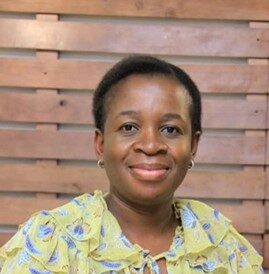
Dr. Sheila Tamara Shawa is a Senior Technical and Partnership Specialist at the Africa Union Commission under Health Systems, Diseases and Nutrition in the Directorate of Health and Humanitarian Affairs (HHS). She is the lead for the diseases unit and has been fostering various partnerships to support the advocacy and implementation of health frameworks. Dr Shawa possesses expertise in diseases control programs with over 15 years extensive experience in policy formulation and advocacy as well as addressing other public health concerns. She recently coordinated the development of the Continental framework on NTDs that has helped raise the profile of these conditions and diseases on the Continent. Dr Shawa was instrumental in the establishment of the Africa CDC as senior project officer where she was responsible for coordinating activities of the Governing Board, Advisory and Technical Council, Regional collaborating centres including in Central, Eastern and Southern Africa. She was also responsible for coordinating various technical activities at HQ including the development of the first Africa CDC five-year strategic plan. Before moving to Africa CDC, she worked under the ADIS, TB Malaria and other infectious disease units in the department of social affair and was involved in policy development and advocacy. She was part of the core team that developed the Catalytic Framework to End HIV/AIDS, TB and Malaria by 2030 and also the revision of the Africa Health Strategy (2016-2030).
Dr Shawa holds a PhD in Parasitology from the University of Zambia in collaboration with the University of Copenhagen and an MSc in Infectious Diseases from London School of Hygiene and Tropical Medicine and a BSc from the University of Zambia. She holds a certificate in implementing public policy from the Harvard Kennedy School of Government. Dr Shawa seats on the Governing Council of the Zambia Academy of Science and is the Chair for the Committee on Life Science. She is also a Member of the ARISE Technical Advisory Group on NTDs.

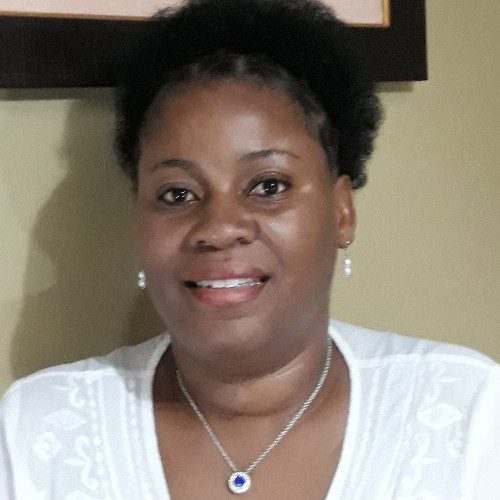
Dr. Angela Gono-Bwalya is a Senior Lecturer and Researcher in the Department of Pharmacy, School of Health Sciences at the University of Zambia. She is a lecturer in Pharmacognosy and Pharmaceutical Chemistry. Her research interests are in Indigenous knowledge systems (IKS), Ethnobotany, Phytochemistry, and Drug discovery processes from medicinal plants.
Dr Gono-Bwalya started her career in 2000 as a Herbarium Research Officer for the Southern Africa Biodiversity Network (SABONET), which was housed at the University of Zambia Herbarium (UZL). She has worked at the University of Zambia since 2004, initially as a Lecturer and Researcher in the School of Medicine, Department of Pharmacy. During her professional journey at the University of Zambia, she has held different portfolios such as; Assistant Dean for Postgraduate studies in the School of Health Sciences, Vice-Chairperson and later chairperson of the University of Zambia Health Sciences Research Ethics Committee (UNZAHSREC), and a member/reviewer of other committees namely; the University of Zambia Biomedical Research Ethics (UNZABREC) and Journal of Agriculture and Biomedical Sciences (JABS). She is also an expert reviewer of Pharmacy programs for the Higher Educational Authority (HEA), Zambia.
Dr Gono-Bwalya is a Natural product Scientist and a Commonwealth Scholar. She obtained a Bachelor of Science Degree in Biology and Chemistry in 2000 from the University of Zambia. In 2001, she pursued a Bachelor of Science Honors degree in Plant Taxonomy and Systematics from the University of the Witwatersrand in South Africa. Thereafter, obtained a Master of Science degree in Medicine at the same University in 2003. She was awarded a PhD degree in Pharmacognosy by the University College London in London, UK, in 2015.
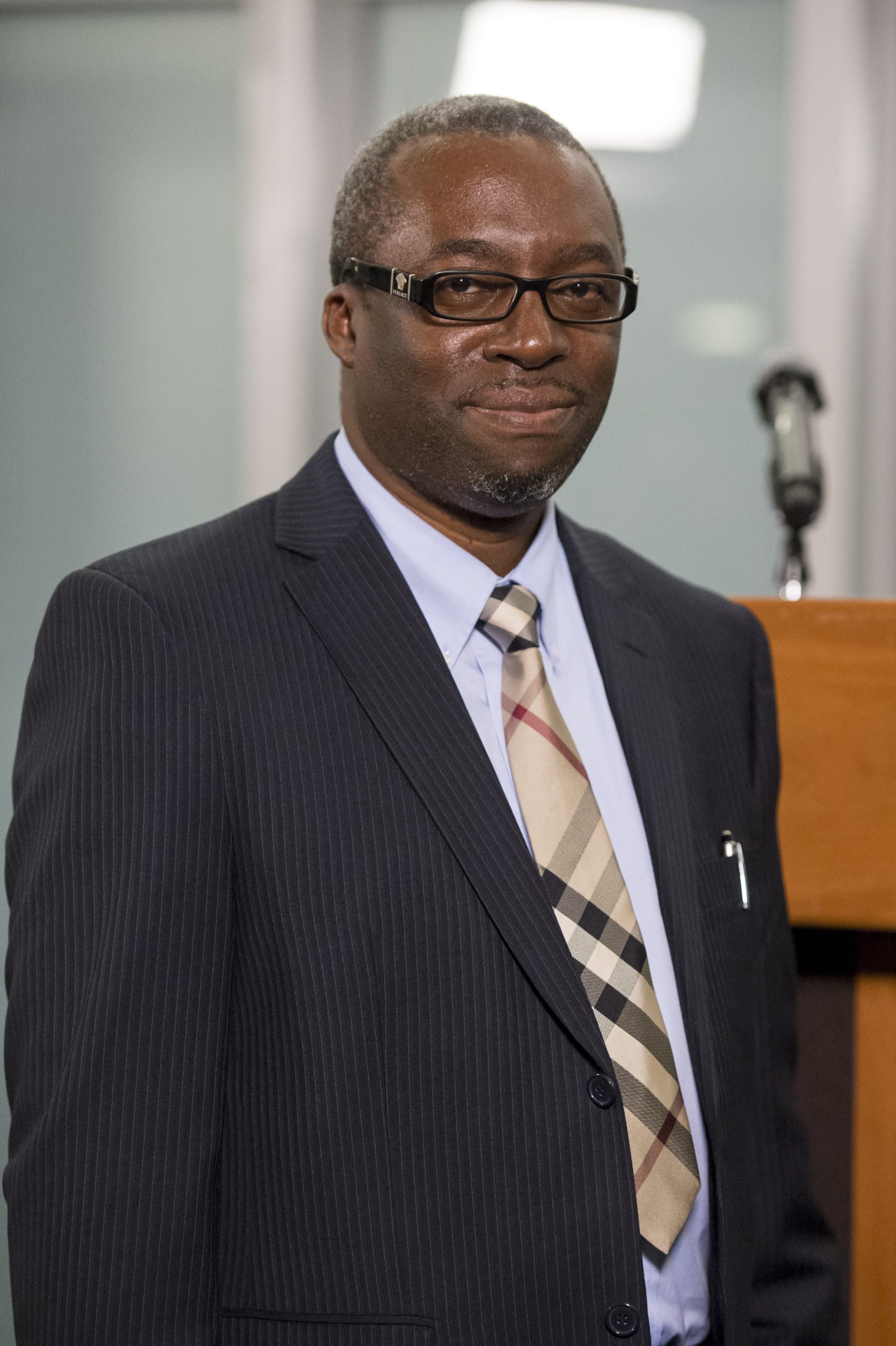
Professor Kenneth K Mwenda is a distinguished Zambian scholar recognized for his significant contributions to legal academia and public service. Elected as an Honorary Fellow of Exeter College, University of Oxford, he is the first Zambian to receive this honor, underscoring his exceptional achievements and influence in the field. Currently, Professor Mwenda serves as Extraordinary Professor of Law at the University of the Western Cape in Cape Town, South Africa, while also holding positions at the University of Lusaka in Zambia. He has previously taught at prestigious 5 institutions, including the University of Warwick, University of Cape Town, and American University Washington College of Law. His international teaching experience spans across North America, Europe, and Africa.
In his career, he has worked with the World Bank as the Manager and Executive Head of the World Bank Voice Secondment Program and previously as Senior Counsel in the Legal and Integrity Vice- Presidencies. He is a Fellow of the British Royal Society of Arts, the Zambia Academy of Sciences, and the International Compliance Association.
With a prolific output, Professor Mwenda has authored nearly 30 scholarly books and over 100 articles in peer-reviewed journals. His mentorship has shaped many young professionals who are now leaders in various sectors globally. He has received numerous accolades, including the President’s Insignia of Meritorious Achievement (PIMA) and recognition as Honorary Tourism Ambassador for Zambia.
A Rhodes Scholar, Professor Mwenda completed his graduate law degree at Oxford, where he was awarded the Bachelor of Civil Law (BCL). He holds a PhD in Law from the University of Warwick, a Higher Doctorate in Law (LLD) from Rhodes University, and a Doctor of Economic Sciences (DSc(Econ)) from the University of Hull. Additionally, he is a US-certified Anti-Money Laundering Specialist and Mediator.

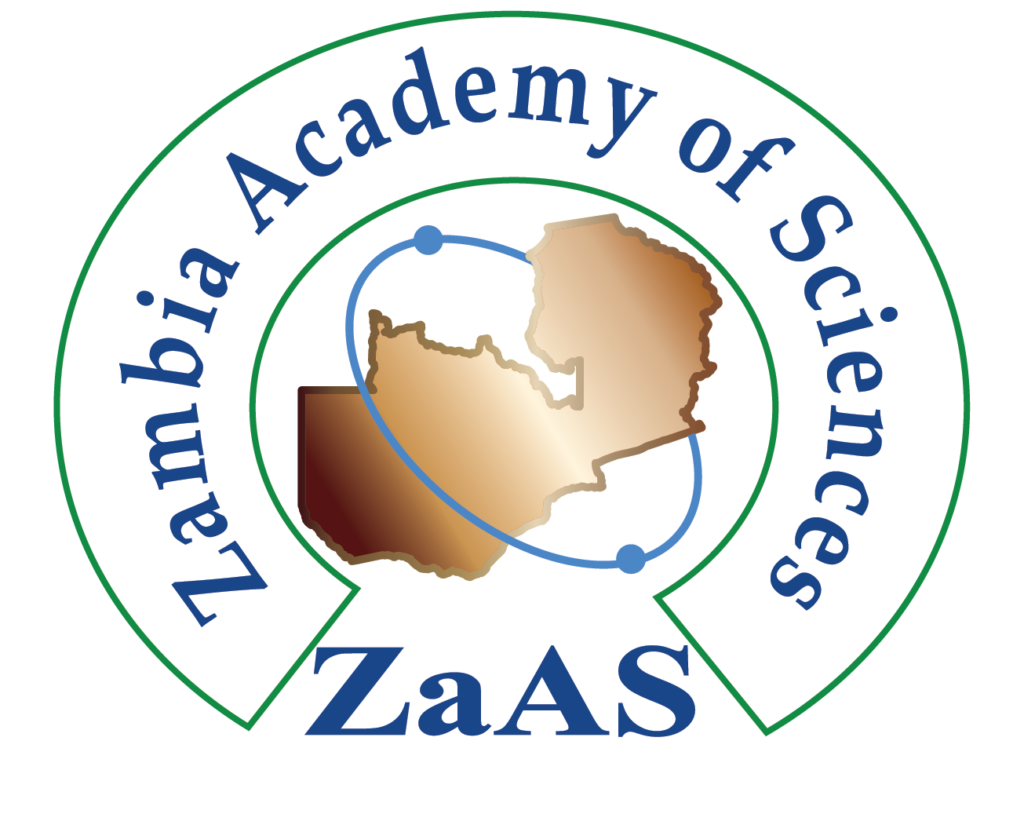
The Zambia Academy of Sciences is an independent organization uniting leading scientists and engineers. Its mission includes promoting technological innovation, advancing research, and utilizing science and technology for sustainable development in Zambia, fostering excellence in the field.